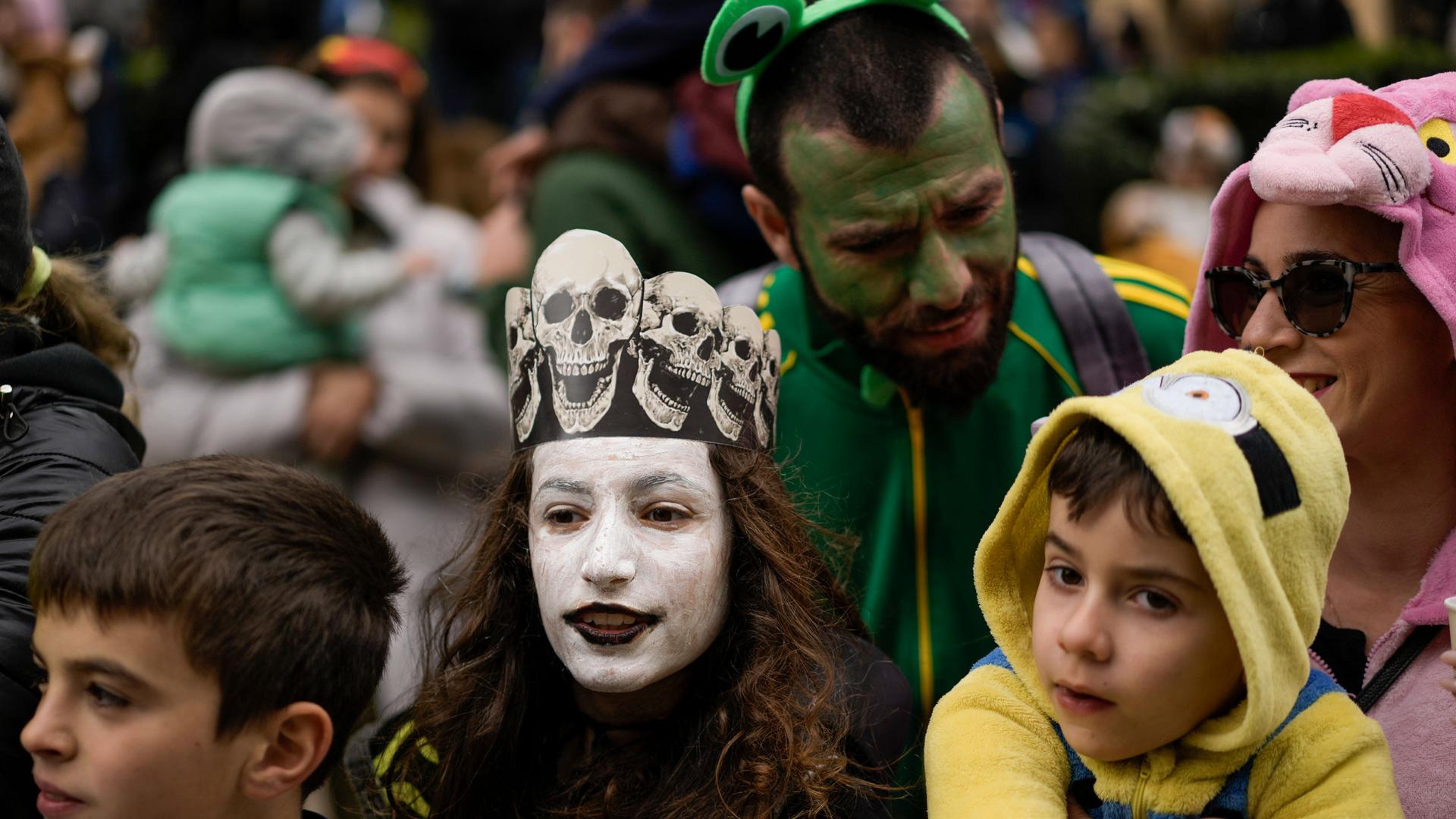Over the weekend, 20- and 30-somethings dressed up in costumes in Jerusalem’s central market to celebrate the Jewish holiday of Purim.
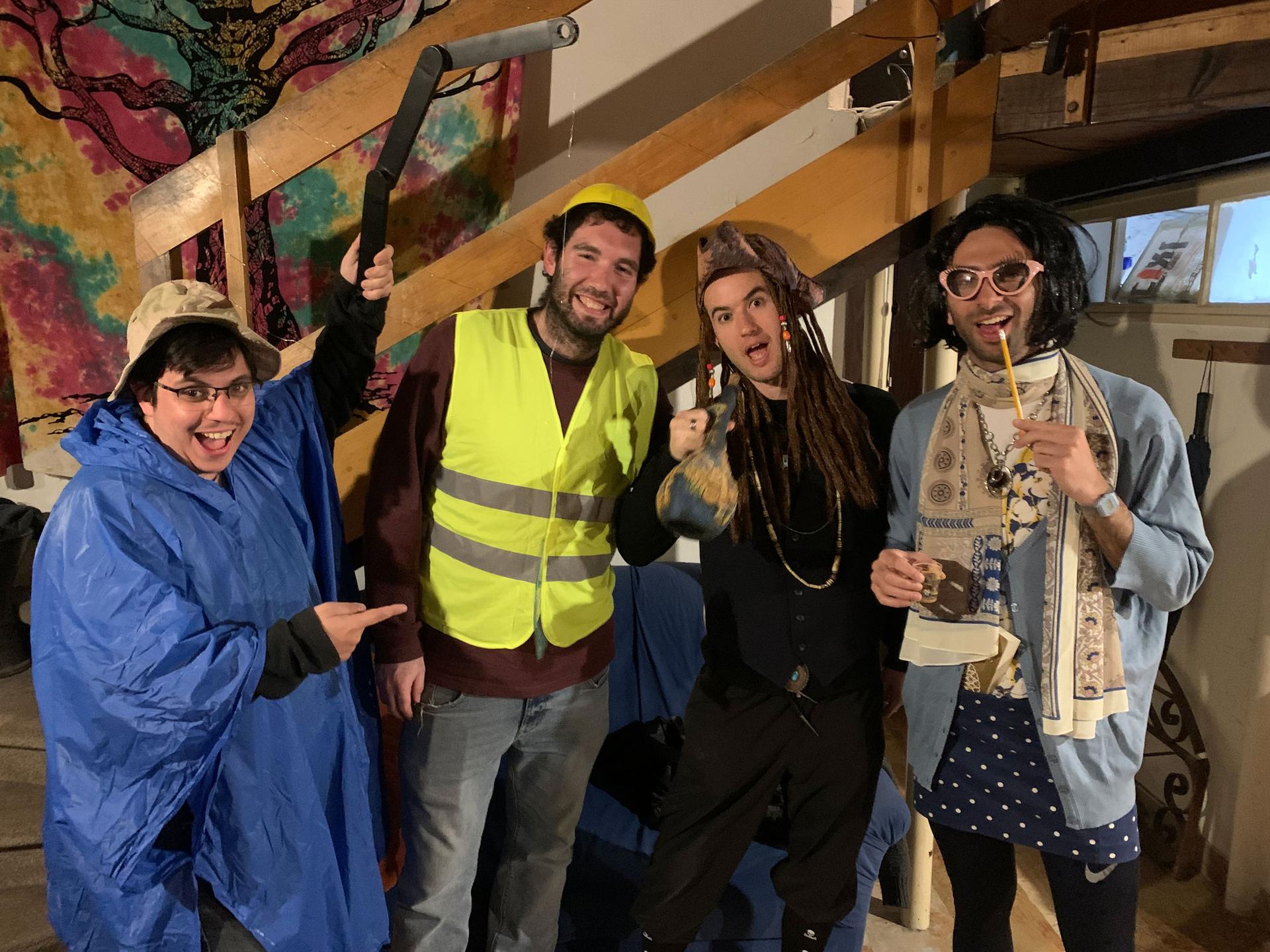
The story of Purim is a classic tale of good defeating evil with the help of God. The holiday marks the survival of Jews in ancient Persia and is known for raucous parties, costumes and drinking.
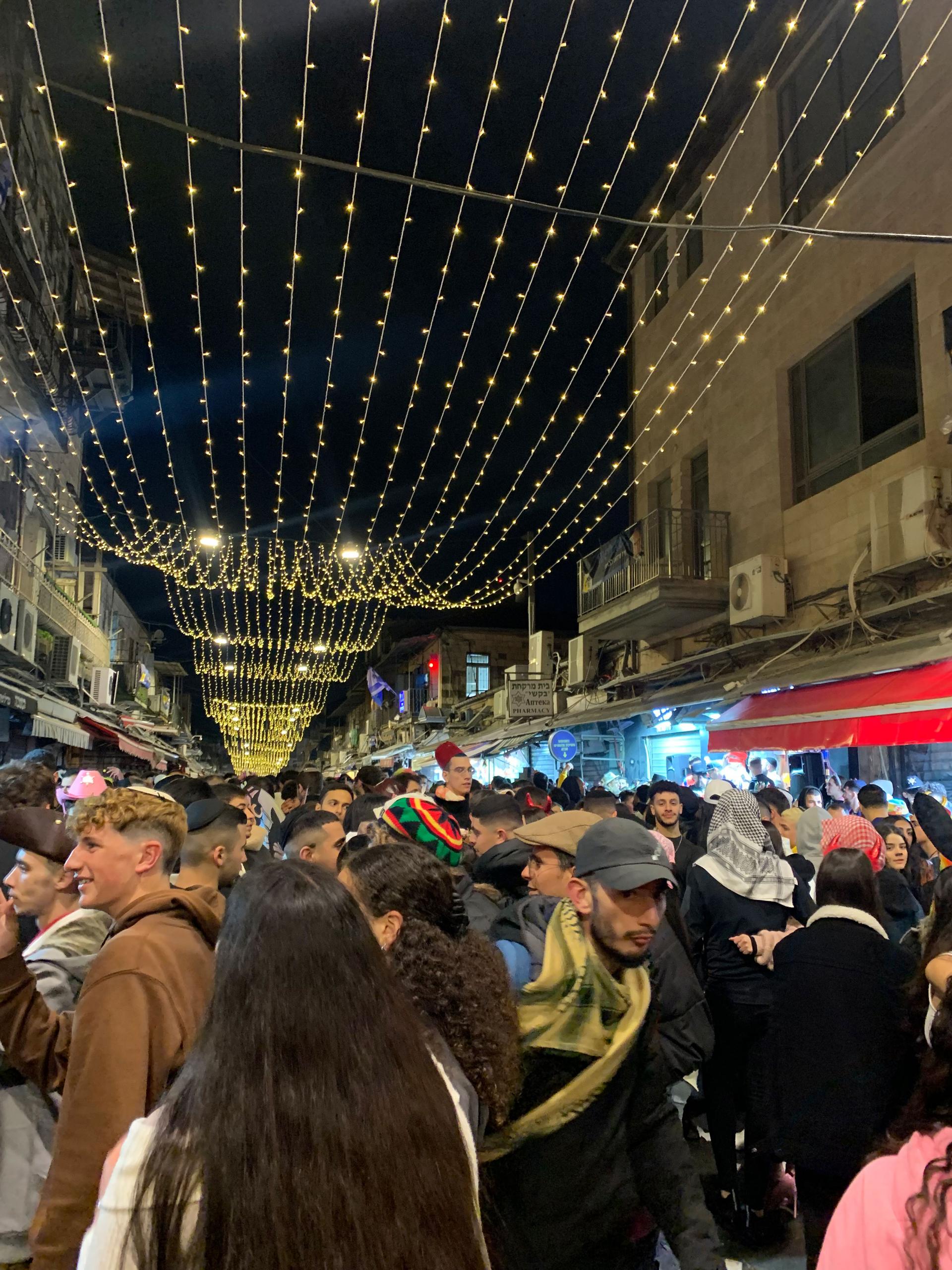
But this year many Israelis wondered what was appropriate under the circumstances.
“In this particular year, our joy is limited or is held back by the fact that there are still 134 Israeli hostages in Gaza, by the fact that we have many soldiers fighting in Gaza and on the northern border. And by the fact that there are hundreds of thousands of Israelis who have been displaced from their homes,” said Rabbi David Golinkin, president of the Schechter Institutes Incorporated, an organization that supports a number of Jewish schools, mostly in Israel.
Still, Israeli Jews found ways to celebrate.
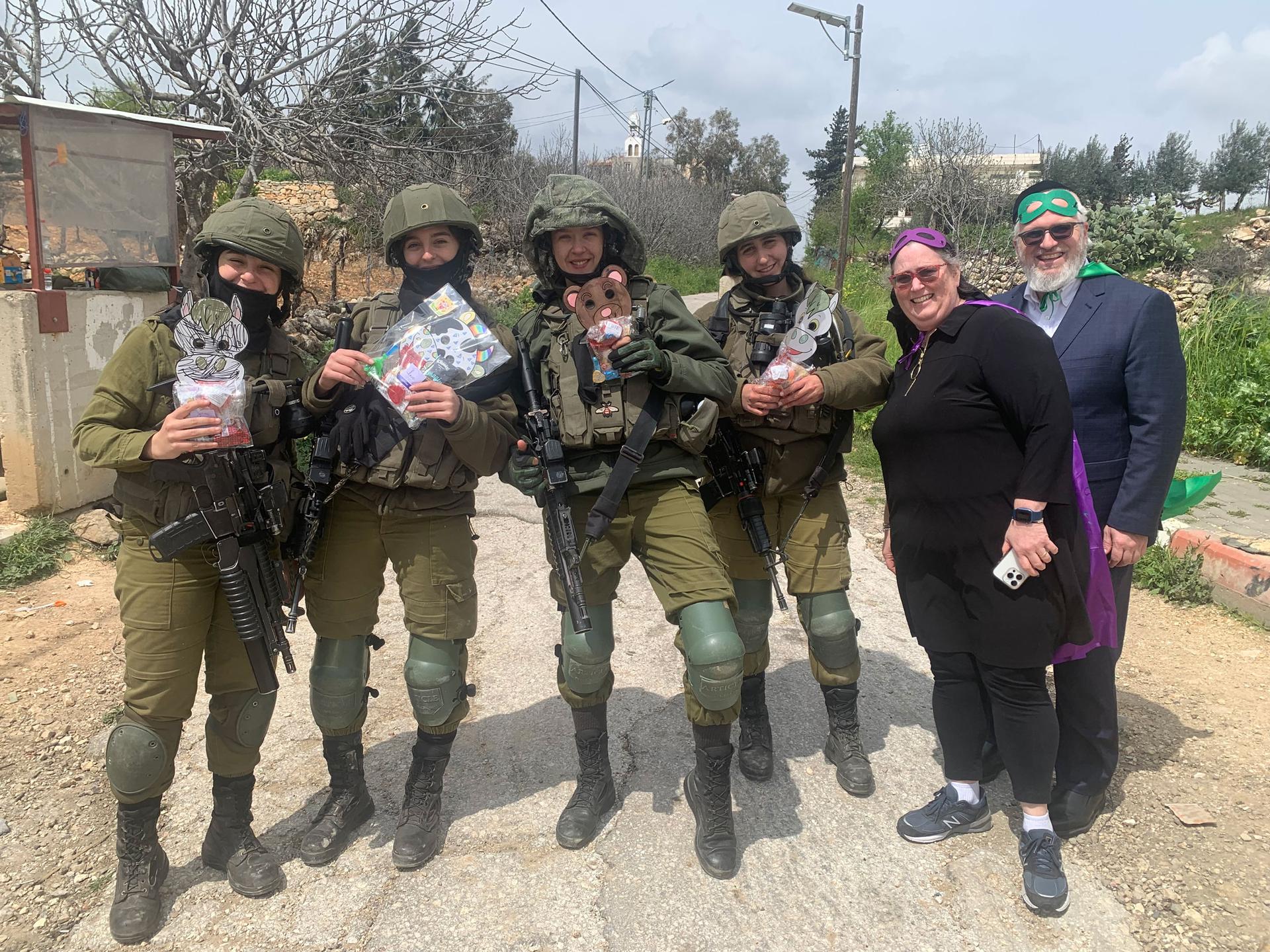
Festivities typically include reading the Purim story as written in the megillah (the Book of Esther).
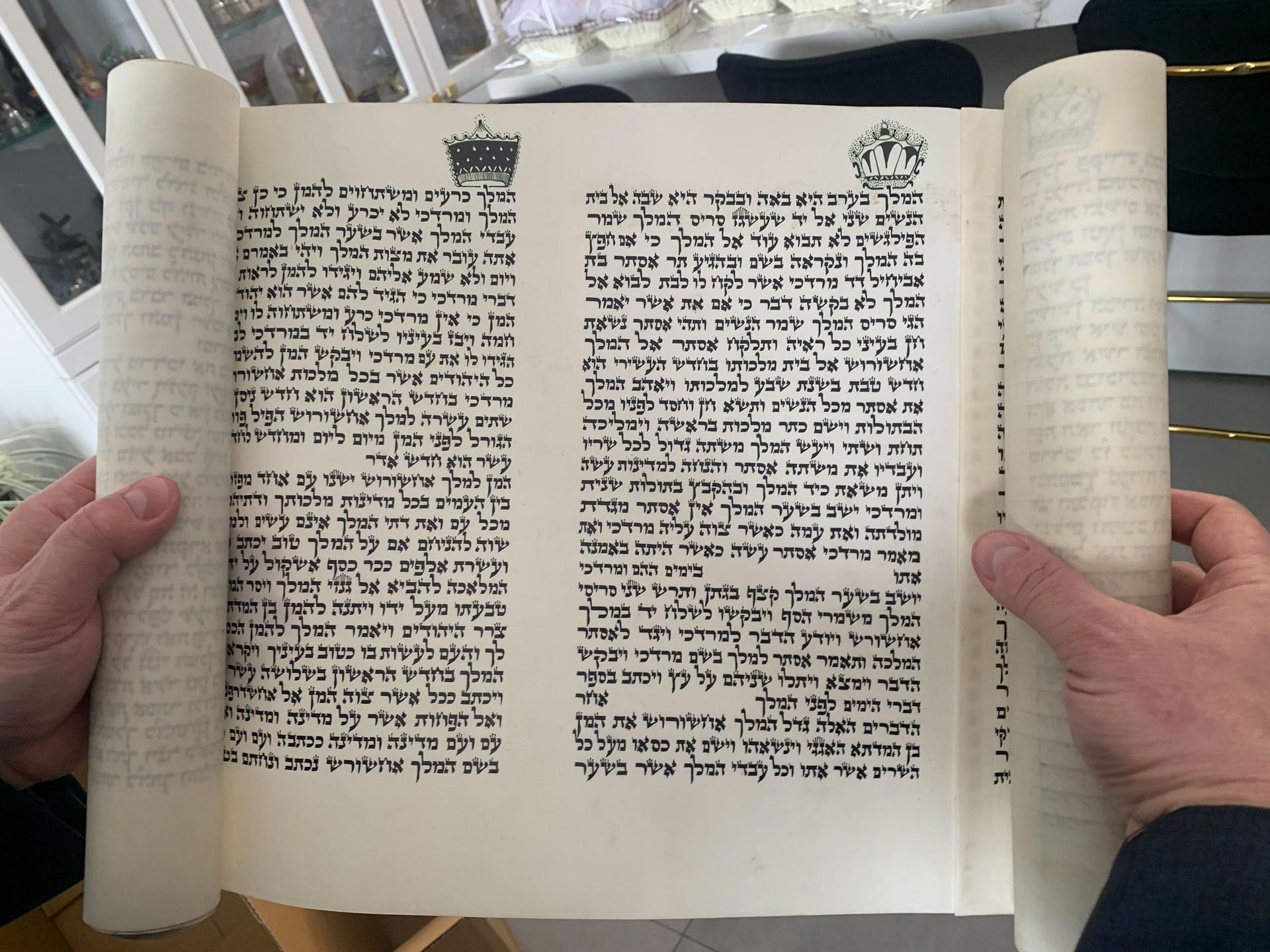
Some people attend costume parties and exchange mishloach manot (baskets of food and drinks).
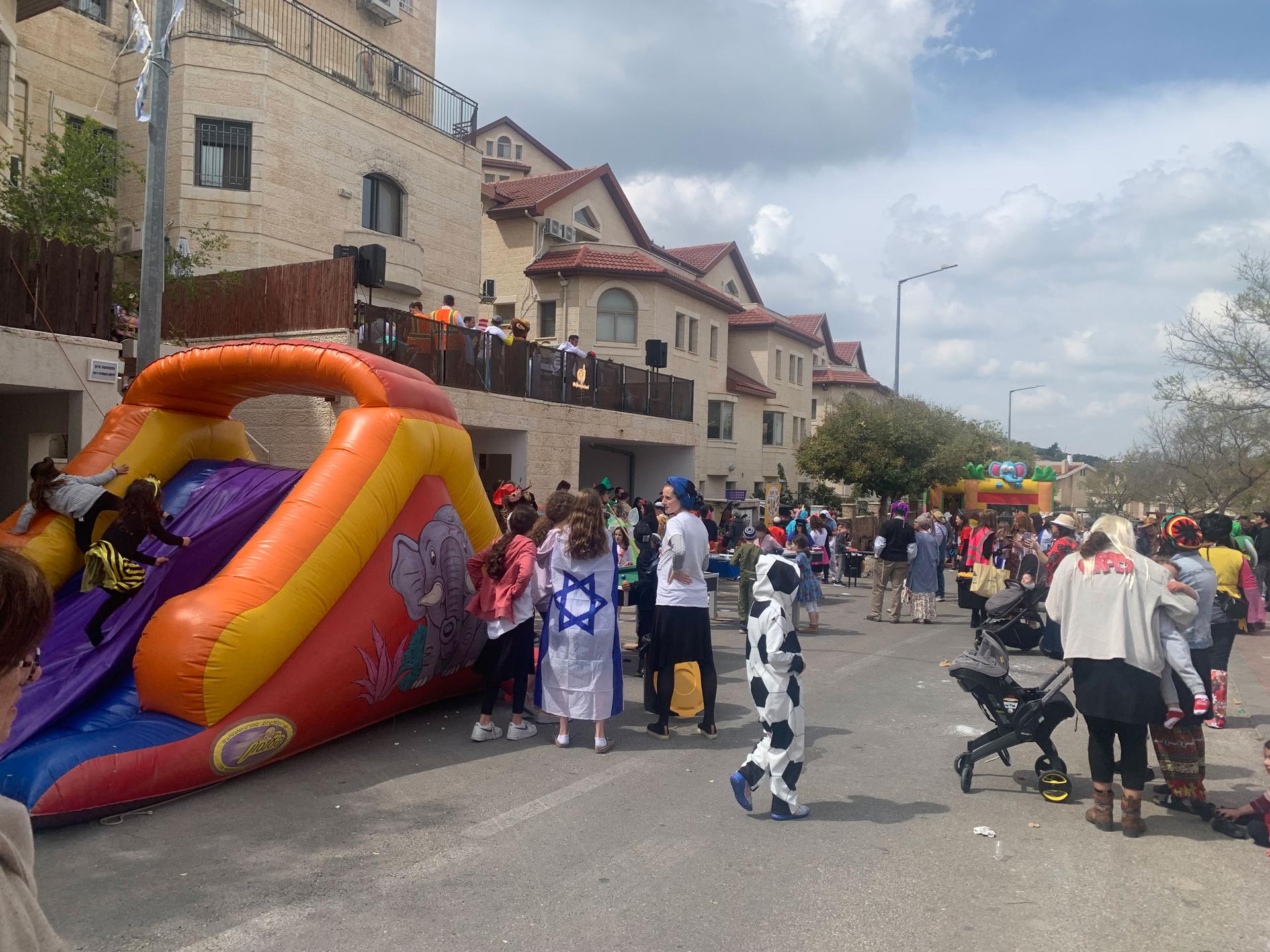
The holiday also includes eating cookies known as hamantaschen — said to be shaped like the three-cornered hat of Haman, the villain of the Purim story — and enjoying the seudah (“feast”), which can include lots of drinking.
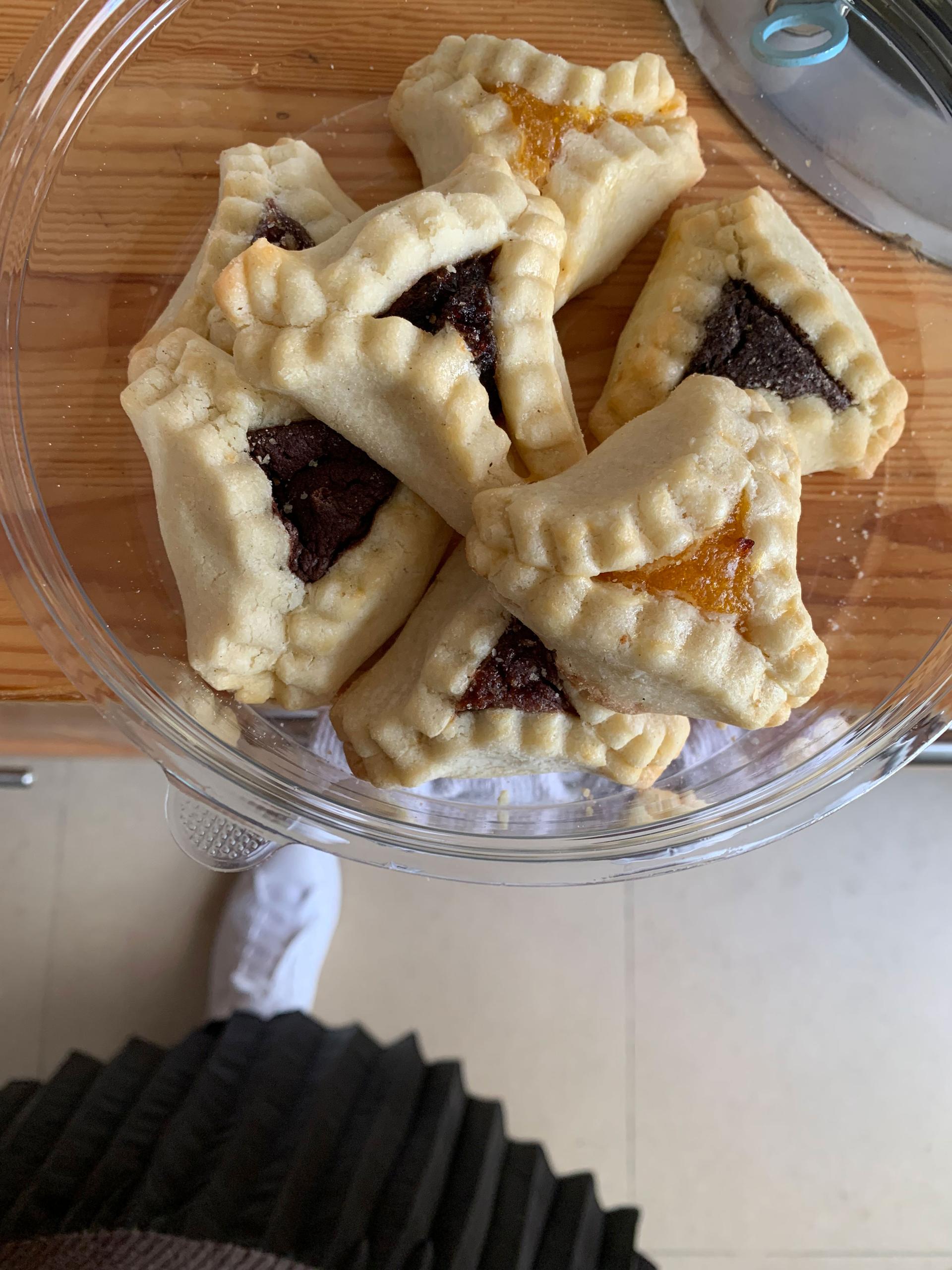
Inside one school gym in Jerusalem, dozens of families gathered to read the megillah and celebrate the holiday with Rabbi Ezra Ende, the leader of Kehilat HaDror and Kehilat Mevakshei Derech congregations.
Little kids roamed around in costumes, snacked on sweets and played with colorful noisemakers.
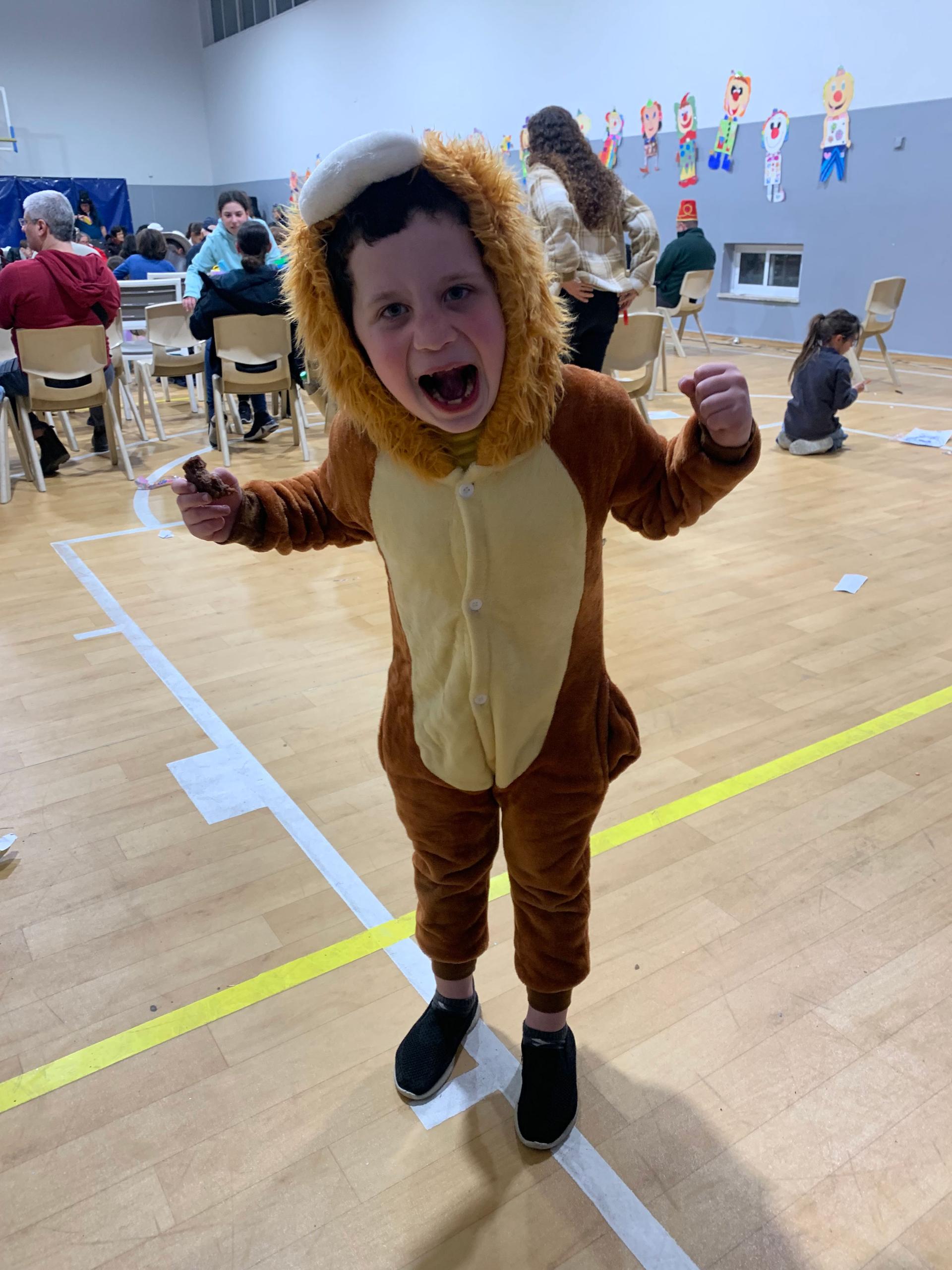
“This year, celebrating Purim was a challenge. It was very important for us to continue living our Jewish lives in Jewish rhythm because Purim is a way for us to express many emotions that we have.”
“This year, celebrating Purim was a challenge,” Rabbi Ende said. “It was very important for us to continue living our Jewish lives in Jewish rhythm because Purim is a way for us to express many emotions that we have.”
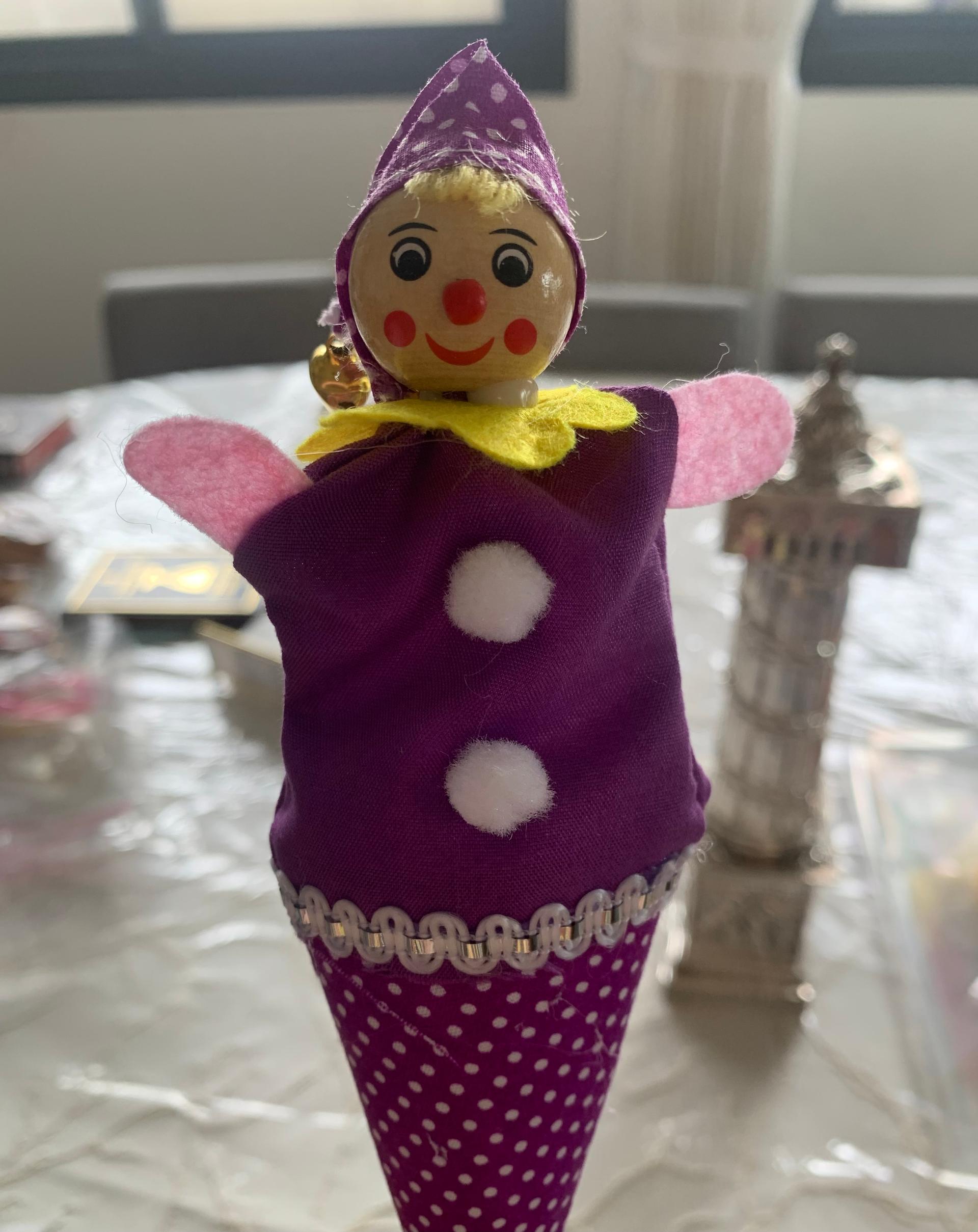
Rabbi Ende decided to include one extra prayer in his Purim service — a prayer for peace called Oseh Shalom.
It translates to, “May the One who makes peace in the high heavens make peace for us and to all Israel.” After it was sung, one extra phrase was added — v’al kol b’nai Adam — which translates in English: “…and on all the children of Adam.”
The story you just read is accessible and free to all because thousands of listeners and readers contribute to our nonprofit newsroom. We go deep to bring you the human-centered international reporting that you know you can trust. To do this work and to do it well, we rely on the support of our listeners. If you appreciated our coverage this year, if there was a story that made you pause or a song that moved you, would you consider making a gift to sustain our work through 2024 and beyond?
